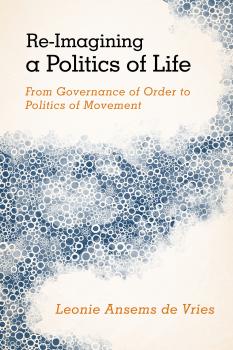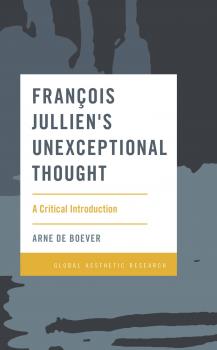ТОП просматриваемых книг сайта:
Афоризмы и цитаты
Различные книги в жанре Афоризмы и цитаты, доступные для чтения и скачиванияConfucianism, Law, and Democracy in Contemporary Korea - Отсутствует
CEACOP East Asian Comparative Ethics, Politics and Philosophy of LawАннотация
Информация о книге
Автор произведения Отсутствует
Жанр Афоризмы и цитаты
Серия CEACOP East Asian Comparative Ethics, Politics and Philosophy of Law
Аннотация
Информация о книге
Автор произведения Thomas Sheehan
Жанр Афоризмы и цитаты
Серия New Heidegger Research
Аннотация
Although the French Hellenist and sinologist François Jullien has published more than thirty books, half of which have been translated into English, he remains much less known in the English-language world than many of his fellow “French philosophers”. This may be due to his work being perceived as within the limits of sinology. This book attempts to rectify this, highlighting Jullien’s work at the intersection of Chinese and Western thought and drawing out the “unthought” in both traditions of thinking. This "unthought" can be seen as what conditions our thought, and opens it up onto new ways of thinking and understanding. The notion of "unthought" is at the core of Jullien’s methodology, operating in what he calls the "divergence of the in-between". Written in an engaging style, Arne De Boever offers an accessible introduction to François Jullien’s work that emphatically challenges some of the core assumptions of Western reasoning.
Аннотация
Аннотация
Space and time are not just terms and functions of the bigger/larger objects in our lives, but intricately woven into the cells that make up our spleen and the neurotransmitters that carry our sense of truth and integrity (or some other thing that carries that–which we have not yet figured out how to find or name just yet). The mercurial and hermetic principle that everything above operates on similar principles as the things below (inside as well as outside) holds true in this conversation, as we might expect. We impact where we are–in space and in time. Where we are in space and time impacts us as well. From a distance or a different vantage point, none of this seems true. Close up, and at other places, all of this seems true. This is what we can sustain when we are growing. All of this being said, I suppose the journey this collection is meant to set us on is the journey of exploration to see how we are woven into and among the where and when of who and what we are. Push and test the connections and the spaces in between to see how the one is or is not showing itself to be the other. Get a sense of what influences, and in which direction.
Аннотация
Championing diversity has never been so entertaining. In over 600 aphorisms, essays, parables, and dialogues, such themes as God, politics, and love are explored with a view to the range of humanity's possible fates. Every negative philosophy is bled dry, every positive philosophy made negative, every relevant theology revived and twisted to bear witness. For societies sightseeing over the abyss, a tour guide is needed. This is a self-help book for the endangered species swinging on the top of the food chain. Suicide or conservation? Genes versus environment: saving one entails the abandonment of the other, and throwing yourself under a whaling boat may be the most minimal extinction event possible.
Аннотация
This book is a narrative, interspersing prose and poetry within a compatible place. The boundary between these forms is porous, for intersections between them are not considered as a negative. Rather, they are seen as a method–a way to exemplify the various contents by bringing them into a new and less rigid order–and then to watch them change again.
The contents comprise a number of issues: Mind, brain, (soul), and their philosophical divergences–fact, fiction, and their pluralities of truth–rationalism, empiricism, and categorical confusion–an intersection of belief-systems generating a field of unlike places–pornography, eroticism, and their changing representations. There is a fantasy about the Devil's need for art in Hell, and some extended frolics with characters out of older comic strips. These are followed by ruminations on dying, ending, and their separate embellishments. Poems weave through and color all.
The broad theme of this book interprets culture as a history of transgressions between competing beliefs: Rigid borders inevitably lead to boredom, stasis, and oppression. Porous borders can lead to schism, communion, ecstasy, atrocity–as the passing case may be.
The contents comprise a number of issues: Mind, brain, (soul), and their philosophical divergences–fact, fiction, and their pluralities of truth–rationalism, empiricism, and categorical confusion–an intersection of belief-systems generating a field of unlike places–pornography, eroticism, and their changing representations. There is a fantasy about the Devil's need for art in Hell, and some extended frolics with characters out of older comic strips. These are followed by ruminations on dying, ending, and their separate embellishments. Poems weave through and color all.
The broad theme of this book interprets culture as a history of transgressions between competing beliefs: Rigid borders inevitably lead to boredom, stasis, and oppression. Porous borders can lead to schism, communion, ecstasy, atrocity–as the passing case may be.










